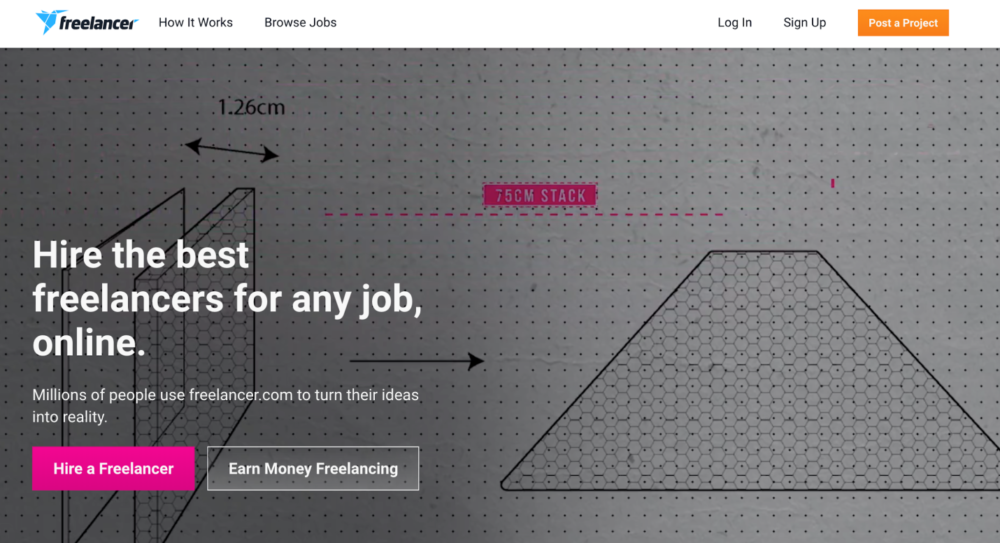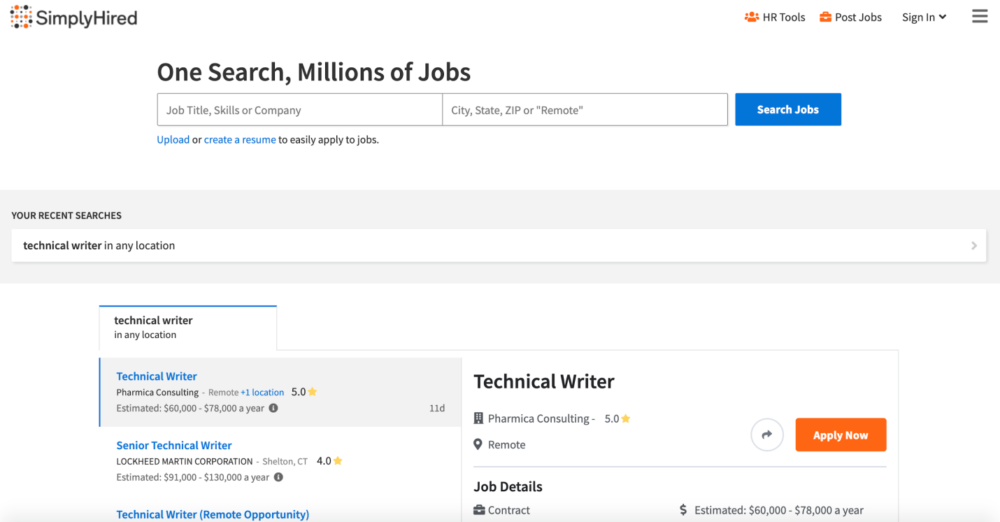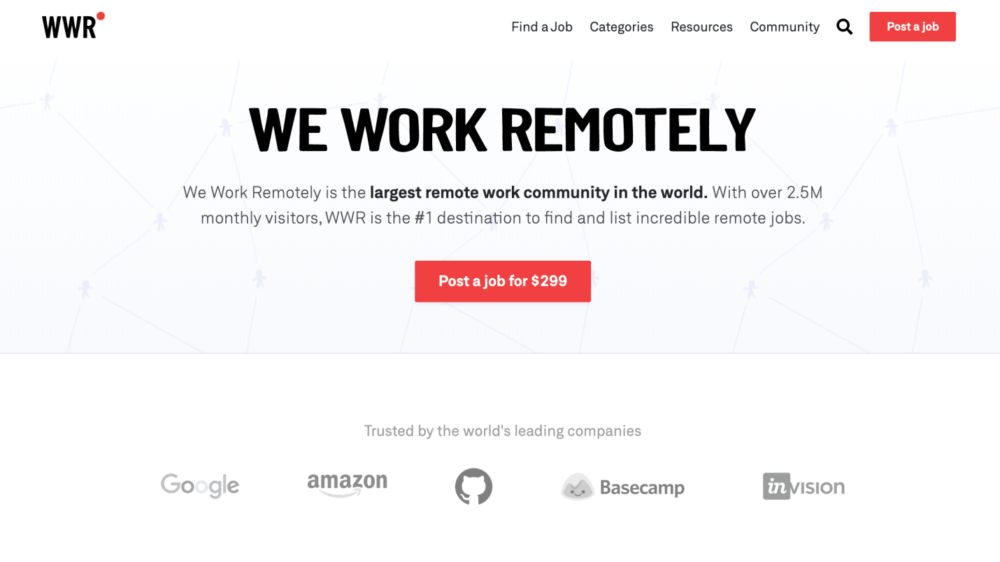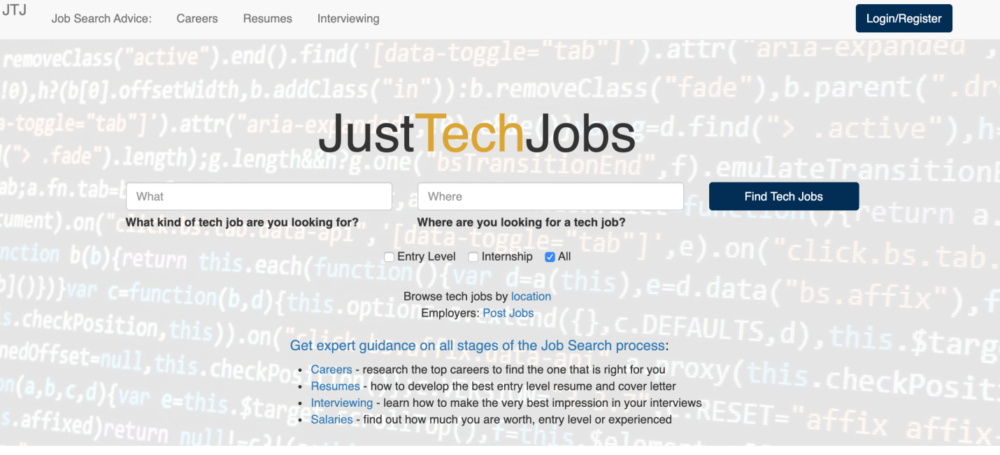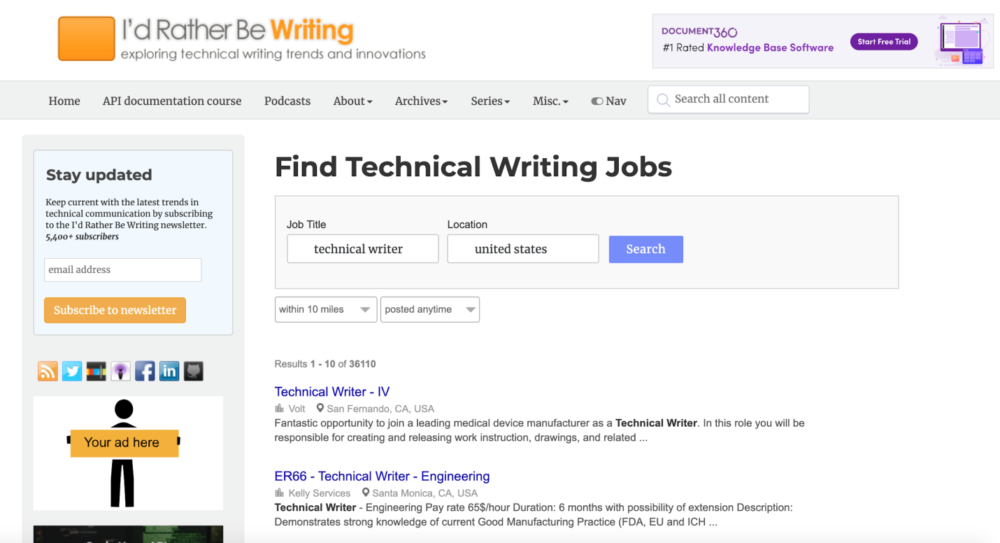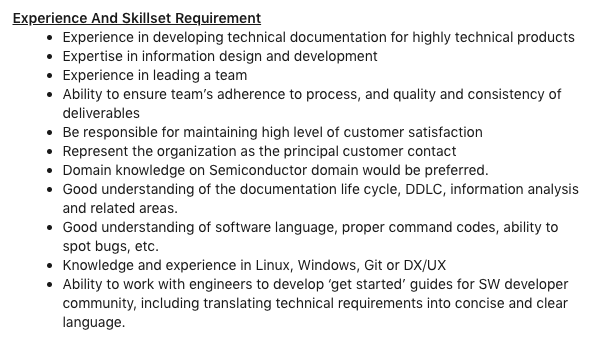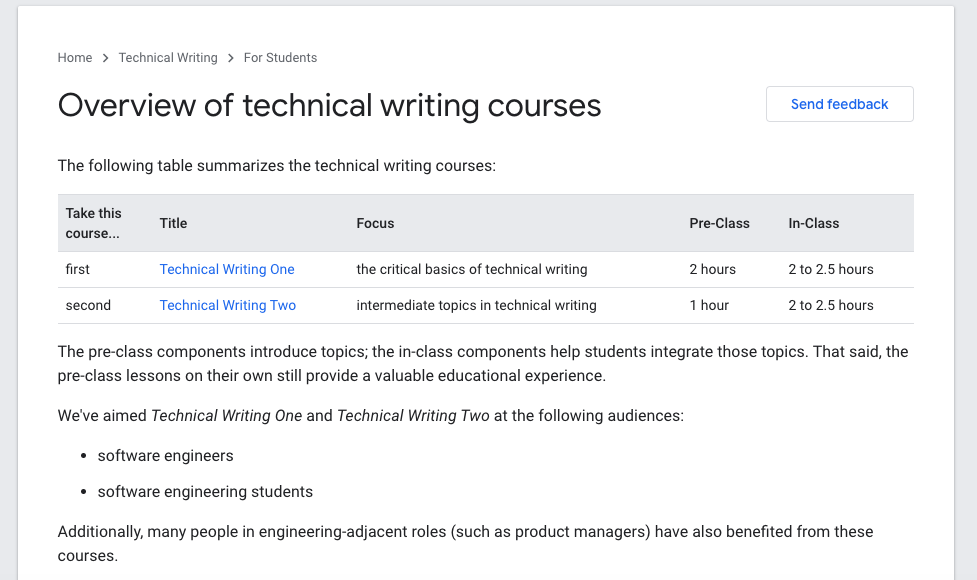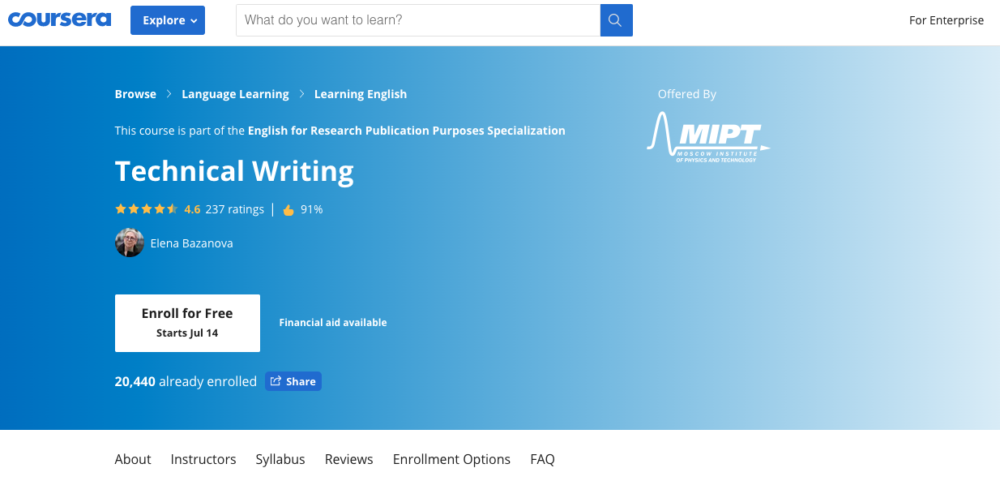Here’s an open note to everyone who wants to be a technical writer.
It’s challenging. It’s fast-changing. In the beginning, you won’t understand half of the words you’re supposed to describe.
Result? You’re gonna love it.
Seriously, the challenge of taking complex technical concepts and turning them into simple language is both challenging (for the obvious reason) and rewarding (the annual salary reaches $70K, for example, among numerous other benefits).
Money Note: If an extra $1K–$5K/month would change your 2026 goals (debt, savings, travel, freedom), you’ll want to catch this: free live workshop from a freelancer who’s earned $4M+ online. No fluff. No gimmicks. A real roadmap. 👉 Watch the training or save your seat here »
To gain technical writer jobs, you’ll need to learn a lot, but that applies to all writing professions. The industry you’re going to be writing for has tons of professional words, so you’ll need to familiarize yourself with them to sound like an expert.
But it will get much easier as you go. When you have enough knowledge, that technical style of writing will even feel natural.
To top it all off, there are many job companies that offer highly rewarding technical writer jobs, so you can earn a nice living.
This in-depth guide is here for you to help with:
- learning how to become a technical writer
- getting help with getting new jobs.
We’ll start with the top websites for technical writer jobs. Afterward, you’ll find a detailed guide to the qualities and skills you need to make a good start in this profession.
Top Sites for Finding Technical Writer Jobs

1. Brybe.com
Brybe.com is a new digital marketplace, launched in 2019. It’s designed to connect buyers, freelancers, and influencers so they can work together and achieve great successes together. Anyone is welcome to join Brybe – the sign-up is free. Additionally, if you create a buyer’s profile, you can easily switch to freelancer or influencer in case you want to try your chances as a creator.
With its simple and easy-to-use interface, Brybe.com enables each one of its users to build up their profiles, connect them with their social media accounts, and start posting job offers or applying for jobs. The number of industries available at Brybe is huge, which creates additional freedom for buyers and creators. It’s a one-of-a-kind platform, a place where business owners can find skilled freelancers and influencers to help them reach their business goals.
2. Upwork
Upwork is one of the biggest freelance platforms in the world.
The best thing about it is that there are always tons of technical writer jobs available for writers of all skill levels. Upwork is really popular with clients from all over the world, so the supply of projects is nice and steady.
To become a user, you need to register and have your account approved. It typically takes one day. After that, you’re free to apply for technical writer jobs, submit your bids, and earn.
3. Freelancer.com
Another large freelance platform with numerous technical writing jobs. Like Upwork, it has a great reputation, so there’s a steady flow of projects in all kinds of writing.

Freelancers can bid on projects posted by clients. In addition to one-time projects, there are also part-time and full-time jobs, too. Another interesting thing you’ll find is the list of freelancers who applied to jobs, which reveals the average bid range for a particular project.
4. Workana
Another worthy online project bidding platform for freelancers.
Workana has a powerful project search system to choose the most suitable jobs from reputable clients. Another great thing about Workana is that the platform prevents bot registration and having multiple accounts.
Just like websites mentioned, Workana supports freelancers by protecting payments from clients and has all popular withdrawal methods that work for every country.
5. PeoplePerHour
This freelancing platform is known for real, good-quality jobs and reliable clients. The charge for PeoplePerHour services is a bit higher than other platforms, but the minimum required pay rate is also higher.
Of course, the platform protects your honest earnings and is ready to assist with client disputes should any occur. PeoplePerHour also has a nice freelancer rating system, similar to popular paper writing review sites like Online Writers Rating. Thanks to it, the clients can see the star rating based on work success for each freelancer.
Currently, PeoplePerHour is a rising star in the world of freelance websites, boasting some of the highest client and contractor users.
6. SimplyHired
This is a popular online job board that has technical writer jobs from all kinds of companies. A “technical writer” search request returns 1,700+ open positions from all over the U.S., so there’re lots of options to explore.
Keep in mind that SimplyHired has US-based jobs. But, some are remote, so make sure to adjust search settings to “remote” in case you’re located outside the U.S.

7. WeWorkRemotely
If you’re looking to get a remote technical writing position, this one is great. Although it has full-time and part-time jobs, too, the platform provides the largest list of remote jobs.
Also, there’s a nice collection of resources for remote technical writers. You can find such useful things like remote work job description templates, tools to manage workload, research on remote work, and educational materials on how to find new projects.
8. JustTechJobs
As suggested by the name, this job board has tech-related jobs only. Searching for projects is a bit easier because of that, as job matches are more accurate. There are technical writing jobs for all skill levels, so you should be able to find something that suits your expertise.
JustTechJobs’ job posting fees are substantial (as are the posting description guidelines), so the positions on the platform are good quality and well-described. That’s why the employers keep them accurate and publish only real and well-paying jobs.
9. I’d Rather Be Writing
This is a go-to source of online writing tips, resources, and jobs for writers of all kinds. It was created by Tom Johnson, a technical writer with an unmatched passion for the profession.
There are podcasts, blog articles, documentation writing courses, and numerous guides on SEO and even guides to finding technical writer jobs. Also, the blog has an impressive job collection with thousands of good-quality options for technical writers.
What It Takes To Be a Technical Writer
So, as you can see, there’s no shortage of technical writer jobs. The demand for skilled professionals is strong, so the time to enter the field has never been better.
But do I have what it takes to be a technical writer? What skills and competencies do I need to have to start this career? Does learning technical writing take a lot of time?
You’ll find answers to all of these and other questions below.
Let’s now quickly go over the basics.
Who is a Technical Writer?
A technical writer is a professional who creates technical documentation like software user manuals, knowledge base posts, and internal guides and documents for developers.
The goal of a technical writer is to understand complex technical information and process it into simple-to-read, well-organized content.
Technical writers mostly work for software companies, governments, and engineering businesses. They can also freelance and accept one-time projects from clients on online platforms.
Requirements to Become a Technical Writer
The requirements and skills to become a technical writer depend on the employer and the industry. But, we can still differentiate some essential ones.
Let’s take a typical technical writer job description from LinkedIn. The image below is taken from an intermediate level skill technical writer full-time position.
Using these bullet points, let’s take out the most important requirements and describe them in more detail.
Impressive, right?
So, here’s what you need to have to get your first job as a technical writer, based on this job ad. Let’s begin with the hard skills, the ones related to professional training.
Technical Writer: Hard Skills
- A bachelor’s degree in a technical field. Although many employers don’t require this (like the one behind this ad), having a degree in automotive, engineering, manufacturing, electronics, or another technical degree would be a great advantage
- Writing skills. You need to be able to write plainly, rationally, concisely, and communicate complex, technical information easily
- Knowledge of documentation tools. The development and maintenance of documentation, templates, and style guides are done in specific tools. From simple ones like Google Docs to more complex stuff like Adobe FrameMaker and ClickHelp
- Knowledge of usability testing tools. Since technical writers often participate in validating documentation with usability testing apps, you need to be able to use them
- Proofreading and editing skills. Every piece of writing needs to be thoroughly proofread and edited for clarity
- User research skills. Technical writers are often involved in user research to find out their needs and goals from using an app.
Technical Writer: Soft Skills
Thought that was it? Not quite.
Besides the hard skills, technical writers are also expected to be proficient in the following soft skills.
- Communication. Technical writers have to communicate with intended users, developers, designers, project managers, and many other stakeholders while working on the copy.
- Empathy. Together with UX writers, technical writers often become user advocates and help with creating documentation that allows people to complete tasks easier.
- Teamwork. As mentioned many times, a technical writer is part of a larger team working on a software product. So, they need to know how to collaborate with others.
- Willingness to learn new things. The projects often have technical writers learning about many complex concepts and equipment. Engineering, software, and manufacturing are the most common areas of knowledge that writers have to study.
So, these are the most essential requirements that employers have for technical writers.
Important! Note that some employers require the basic knowledge of coding in Python, R, JavaScript, or other programming languages.
What is the Best Way to Learn Technical Writing?
Technical writers are always learning. It especially applies to those at the early stages of their careers.
There are a few popular ways in which you people learn technical writing.
- Take the necessary online courses to develop your skill set from scratch
- Make the transition to technical writing after working as a writer in another field (blog writing, copywriting, etc.)
- Get a degree in a specific technical field that relates to a business area in a university and continue by learning technical writing online.
The last way is arguably the best one because it has people trained in both technical knowledge and writing.
Still, it’s perfectly okay if you start by enrolling in an online technical writing course. Many employers understand that there are serious barriers to entry.
So, you can try to get an entry-level job after completing some courses and gaining the skills we listed in the previous section.
Top Online Courses in Technical Writing
Choosing a course can be tricky. Many are quite expensive and sometimes even unnecessary (because you can find the same knowledge in a free course).
Reading course reviews is the best way to choose the best one.
To save you some time, here are the great ones to check out.
Technical Writing Courses from Google
Google has two courses designed for software engineers, software engineering students, and people who are interested in learning the basics of the profession.
Each course is divided into easily digestible 10-15 minute lessons with videos, examples, and simple explanations.
Duration: 5 hours (two courses)
Price: Free
Technical Writing Course from Coursera
One of the most popular technical writing courses on Coursera, for free. It teaches both the basic and intermediate skills via a range of media, including videos, lesson transcripts, and images.
The developers of the course claim you’ll be able to write such difficult documents as consulting reports, design and feasibility reports, progress reports, and laboratory reports.
Duration: 14 hours
Price: Free (without graded assignments and certificate).
How to Get Technical Writer Jobs
You can work as a technical writer both remotely and in an office. Depending on your experience, will place you in what level of job you’ll qualify for.
As a Beginner (0-2 years of Experience)
If you’re just getting into the field, then you have two great options for professional advancement:
- Get an entry-level job. Use the top sites above for finding technical writer jobs we listed previously. Make sure to search for entry-level skill level positions
- Apply for an entry-level skill online project. Many projects on freelance platforms like Upwork and PeoplePerHour can be completed by beginners, so filter your results to find suitable projects and apply.
Want to start as a freelancer? Then you’ll find this useful: 90+ Best Tools for Freelancers who Never Want to Have a Boss Again.
As an Intermediate Specialist (2-5 Years of Experience)
Now that you have some portfolio, you can raise your hourly rate and apply for more complex projects and jobs.
- Apply to jobs strategically. To further progress in your career, apply for jobs that will help you to learn some new knowledge/tools/skills
- Get advice from a mentor. In your professional network, find someone who’s more senior than you. Ask them to share an unbiased, outside perspective on your career advancement.
Finding those new projects, however, depends on you. Get help with getting more clients with these in-depth guides:
- How to Get Freelance Clients (7 Ideas That Work in 2020)
- 24 Places to Get Freelance Jobs on Autopilot in 2020
- How to rock your freelance portfolio, even if you’re a beginner.
Over to You
There’s never been a better time to start a career and work as a technical writer.
The profession is challenging, fast-changing, and can be quite complex. You have to be a true word wizard to turn complex technical content into an easy-to-understand copy.
It is also highly rewarding. You’ll be:
- making a real difference in the lives of ordinary software users
- becoming a real champion of customer advocacy
- a great team player with excellent communication skills
- learning new exciting things every day
- earning a nice living.
The list of advantages goes on and on.
Use these tips and resources to advance your expertise and get more technical writer jobs. Fingers crossed for your successful career!
Keep the conversation going...
Over 10,000 of us are having daily conversations over in our free Facebook group and we'd love to see you there. Join us!



